The Opaque World Of Political Party Finance
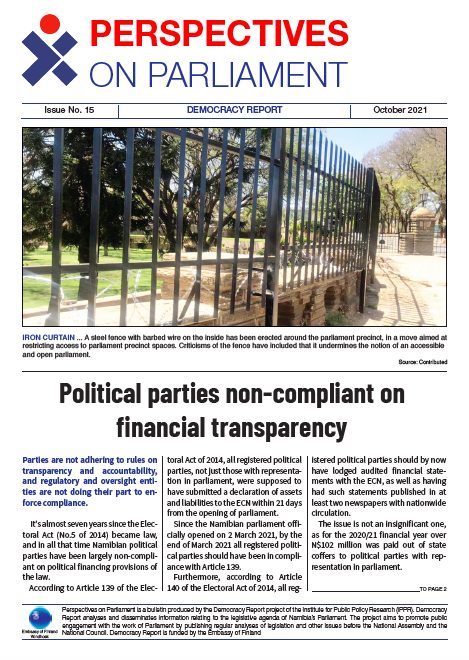
This edition of the IPPR’s Perspectives on Parliament bulletin examines the worrying lack of transparency and accountability that marks political party funding in Namibia. In addition, the publication asks if the current Access to Information bill is up to scratch or if it can still be improved? Also in the spotlight is the dispute over […]
Keep Your Eyes On The Money – Fiscal Oversight in Namibia
The launch of a new research report on public participation and the work of the Office of the Auditor-General on Tuesday October 5 from 10h30 to 12h00 at the House of Democracy, 70-72 Dr Frans Indongo Street, Windhoek. Please RSVP to Ndeshi at info@ippr.org.na
Perspectives on Parliament July 2021
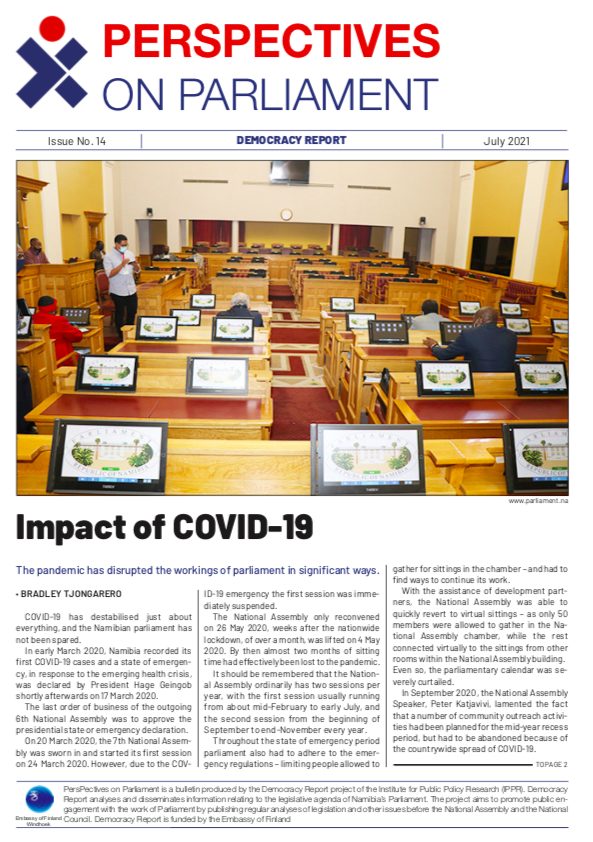
This edition of the IPPR’s Perspectives on Parliament bulletin looks at the impact COVID-19 has had on parliament, asks what has happened to the Access to Information bill, and reviews the recent controversy over genocide reparations. Perspectives on Parliament is part of IPPR’s Democracy Report project which is funded by the Embassy of Finland.
Democracy, Political Parties & Liberation Movements
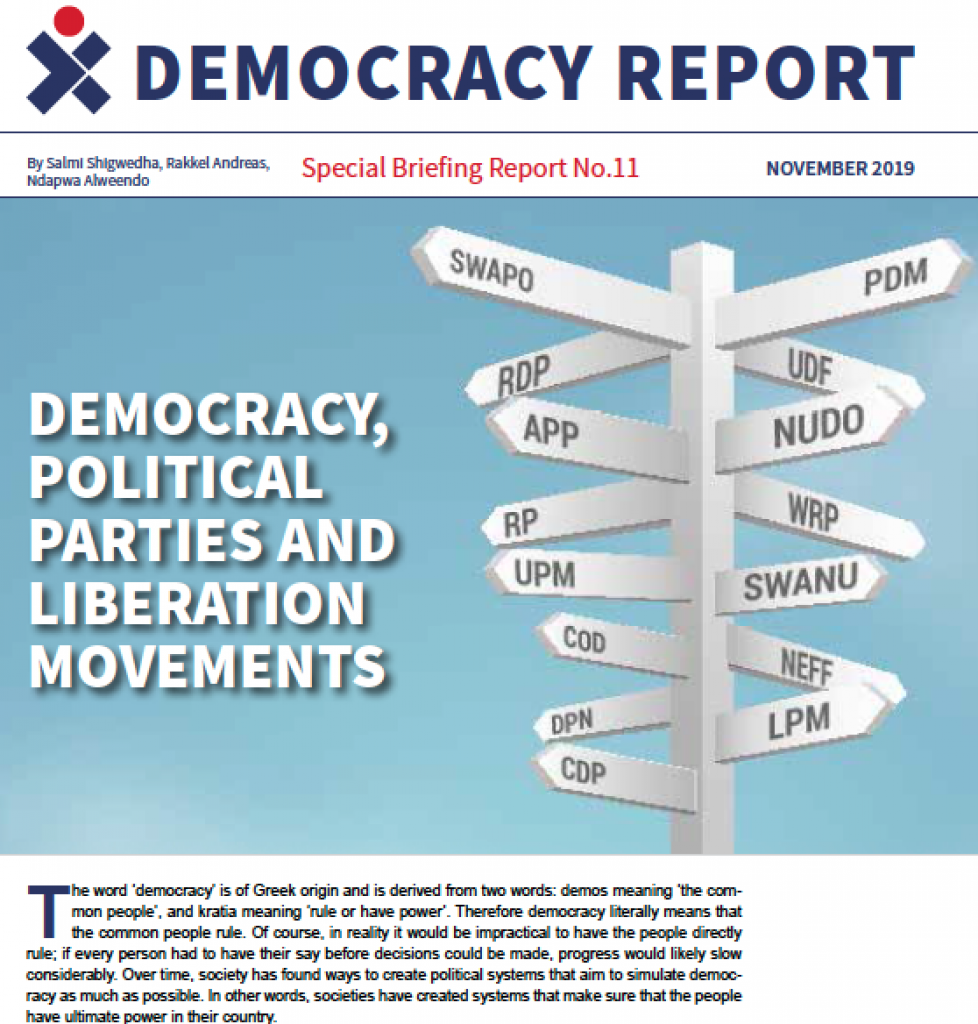
This bulletin explores the characteristics of political parties that have emerged from liberation movements and looks at how such characteristics affect governance
Election Watch – I’m Going To Vote
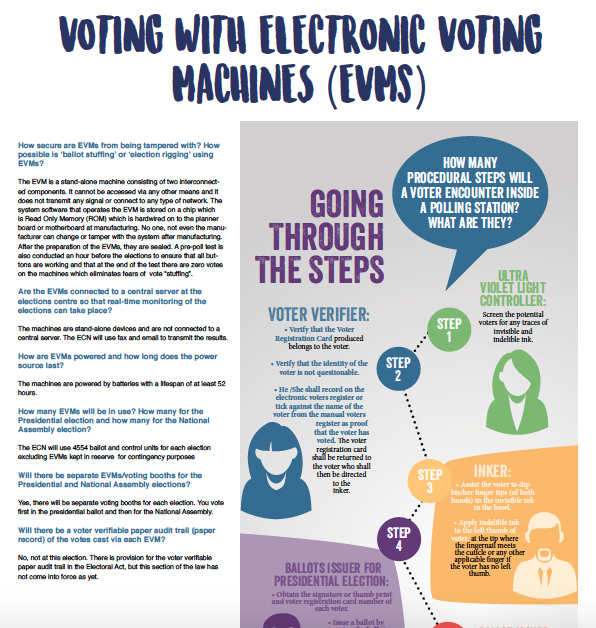
This Election Watch bulletin was compiled to cover Frequently Asked Questions (FAQs) about the 2019 National Assembly and Presidential Elections. It is produced as part of the IPPR’s Election Watch project with the support of the Canada Fund for Local Initiatives.
A Critical Look at Party Manifestos for the 2019 Elections
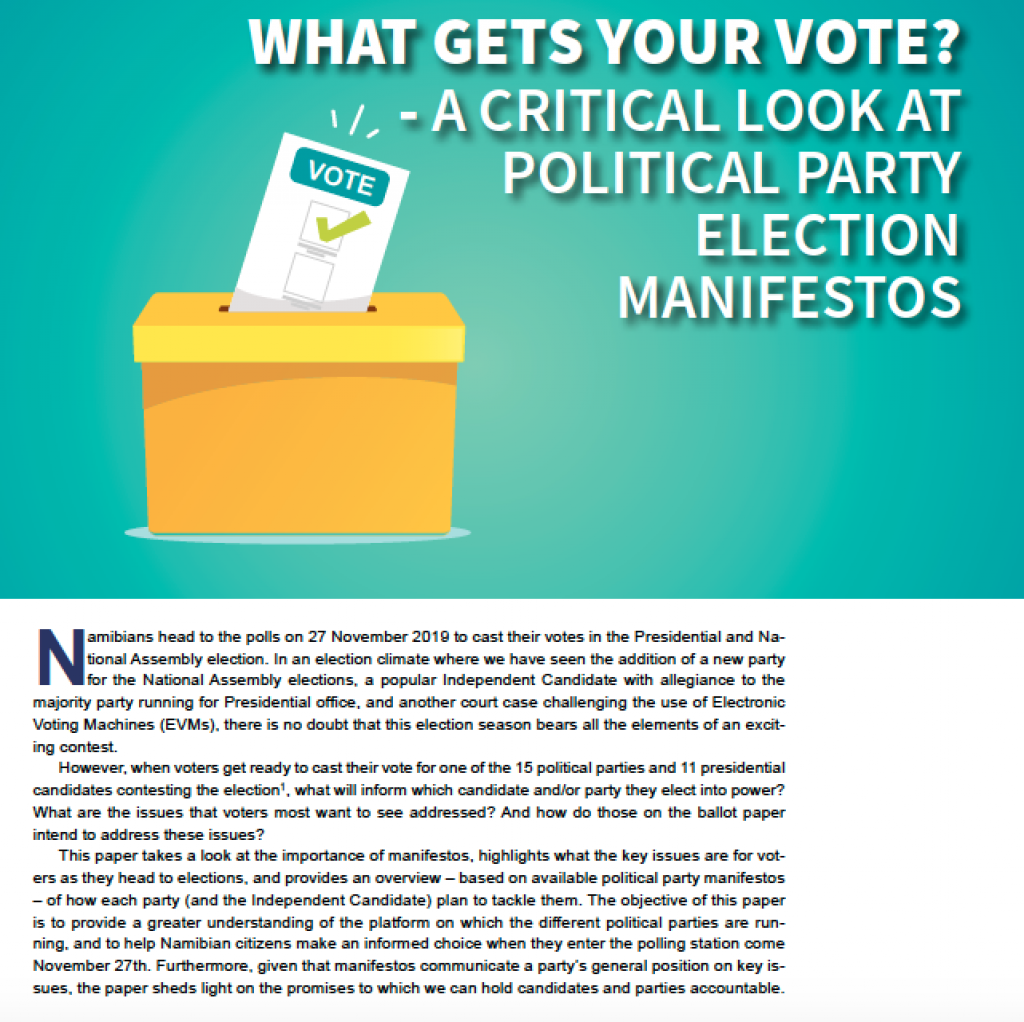
This paper highlights key issues in the manifestos made available by political parties and candidates before the November 27 2019 national elections in Namibia.
Namibian Political Finance
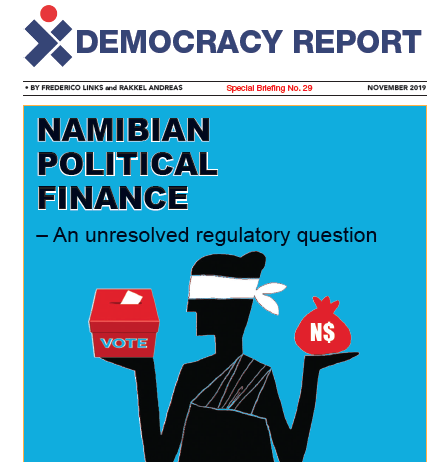
A new paper looking at whether the laws and regulations on the financing of political parties are working
Fake News & Namibian Elections
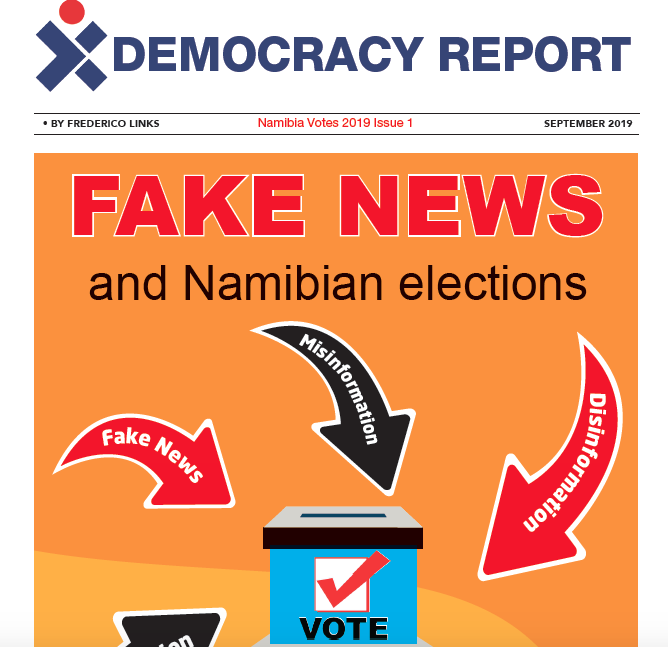
‘Fake news’ –misinformation, disinformation and propaganda – is very much a reality in Namibian political and electoral processes. Various social media platforms have become the preferred battlegrounds on which disturbing, divisive and even dangerous campaigns and content are being shared. This report describes what ‘fake news’ on Namibian social media looks like and where it […]
Digital Democracy
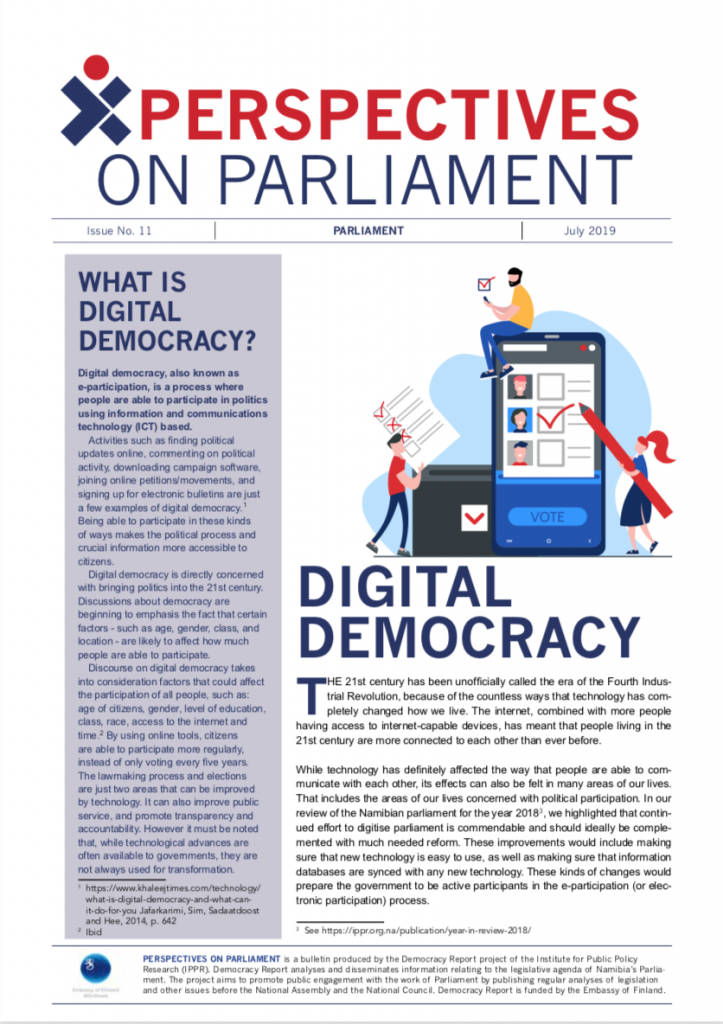
While technology has definitely affected the way that people are able to communicate with each other, its effects can also be felt in many areas of our lives. That includes the areas of our lives concerned with political participation. In our review of the Namibian parliament for the year 2018, we highlighted that continued effort to digitise parliament is commendable and should ideally be complemented with much needed reform. These improvements would include making sure that new technology is easy to use, as well as making sure that information databases are synced with any new technology. These kinds of changes would prepare the government to be active participants in the e-participation (or electronic participation) process.
Spying on Speech
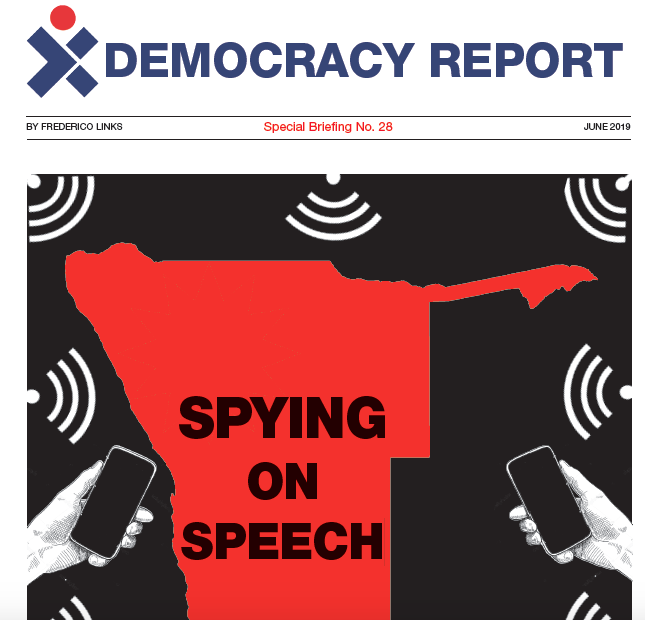
This paper examines Namibia’s approach to surveillance – in particular whether there is adequate legal oversight regarding Namibia’s intelligence services. In addition, there is a concern that Namibia’s spying services are operating in a legal vacuum as a crucial part of the Communications Act – dealing with surveillance – has not been brought into force. […]
